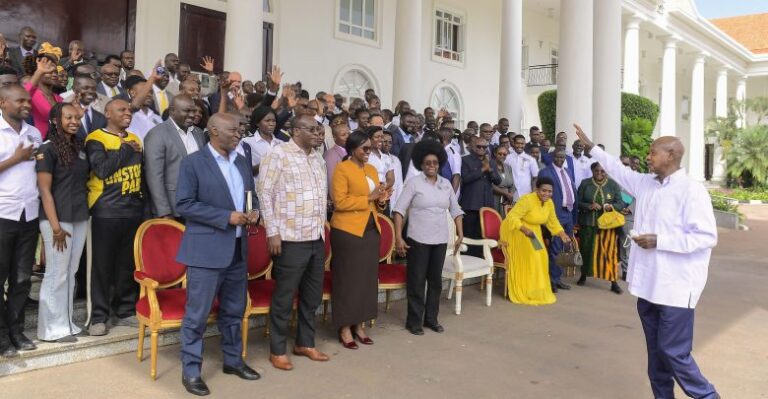President Yoweri Kaguta Museveni has once again doubled down on his vision of transforming Uganda into a modern, science-driven economy.
On Saturday, September 27, the Head of State met a group of scientists and innovation leaders — led by Dr. Monica Musenero, the Minister of Science, Technology and Innovation — at State House Entebbe. The meeting focused on evaluating Uganda’s progress in building a self-sustaining, innovation-led future.
What Uganda Has Achieved So Far
During the briefing, scientists highlighted major achievements that reflect Uganda’s growing capacity for homegrown solutions. Among the milestones presented were:
- Electric Vehicles: Continued development of locally manufactured EVs through initiatives like Kiira Motors.
- Diagnostic Kits: Advances in producing Ugandan-made medical kits that reduce reliance on imports.
- Natural Medicines: Progress in the standardization of traditional medicine, integrating indigenous knowledge with modern science.
- Machine-Building Technologies: Breakthroughs in machinery design to support local industries.
These projects, officials said, are part of a broader effort to position Uganda as a regional hub for science and innovation.
Museveni’s Challenge: Move Beyond Blame
In his remarks, President Museveni praised the scientists for “finally waking up” to their strategic role in shaping Uganda’s development.
But he also issued a challenge. He urged innovators to stop blaming colonialism for the country’s setbacks, stressing that the real task is to harness and mechanize traditional knowledge so it can generate wealth and create prosperity.
“We cannot keep pointing at colonialism forever,” Museveni said. “Our role is to take what we have, standardize it, mechanize it, and use it to transform our society.”
Government’s Commitment
The President assured the team of the government’s continued support, reaffirming that science and technology will remain a core pillar of Uganda’s Vision 2040 strategy.
Dr. Monica Musenero, who has long championed Uganda’s innovation agenda, thanked Museveni for his consistency in backing the sector.
“We are on the right track,” she noted, emphasizing that her ministry and Uganda’s innovation ecosystem are aligning behind the science-led approach to national development.
Why It Matters
Uganda’s emphasis on building a science-based economy comes at a time when African nations are racing to diversify beyond agriculture and raw material exports. By investing in EVs, biotech, and machine technologies, the government hopes to create:
- Jobs for youth in high-value industries
- Reduced dependence on imports
- Stronger global competitiveness
Analysts say Uganda’s success will depend on consistent investment, private sector collaboration, and the ability to translate lab innovations into commercial products.
The Bigger Picture
As the meeting at State House made clear, Uganda’s future is being written not only in politics but also in labs, factories, and innovation hubs across the country.
The President’s call to “wake up” may have sounded blunt, but it underscores a truth: Uganda’s development will increasingly depend on homegrown science, technology, and innovation.




